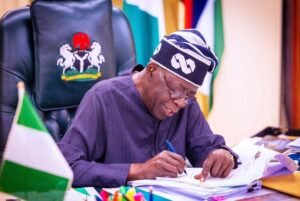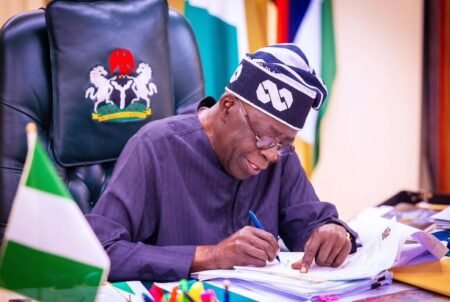Rights groups fear “mass atrocities” in Uganda as it prepares for an election next year, with President Museveni seeking a seventh term, a crackdown on the opposition and violent threats from the heir apparent.
President Yoweri Museveni, 80, will already have been in power for 40 years when the election takes place on January 12, 2026.
He launched the process with a voter registration drive last week.
The opposition says hundreds of their supporters disappeared or were killed during the last presidential election in 2021 when musician-turned-politician Bobi Wine presented the biggest threat yet to Museveni’s reign.
Wine — who has himself been arrested multiple times and survived alleged assassination attempts — is not hopeful for the 2026 vote.
“As the opposition and myself have experienced the most horrific treatment from the government and we know they can even do worse things, including killing me… we don’t expect the coming elections to be better,” said Wine, whose real name is Robert Kyagulanyi.
“(Museveni) is aware his government has no legitimacy and is disliked by the population and can only use more violence to ensure he remains in power,” Wine told AFP.

But he added: “We are ready to carry the struggle to liberate our country, no matter how much we get into harm’s way.”
The threats are not subtle.
The president’s son, heir apparent and head of the armed forces, Muhoozi Kainerugaba, wrote of Wine on X this month: “If Mzee (Museveni) was not there, I would cut off his head today.”
Wine said he didn’t take the message seriously, “but they are a pointer of what the regime of his father can do”.
Another former presidential candidate, Kizza Besigye, was kidnapped while visiting Kenya in November and spirited back to Kampala, where he now faces charges including treason that carries a potential death penalty.
Thirty-six members of the Forum for Democratic Change, an opposition party, were also abducted in Kenya while holding a leadership seminar in July and face terrorism charges in Uganda.
George Kanyeihamba, a former supreme court judge, told AFP: “Violence has become part and parcel of electioneering” under Museveni and only a “miracle” would change that in 2026.
– ‘Growing disputes’ –
Emmanuel Dombo, spokesman for the ruling National Resistance Movement, denied all the allegations, saying the party had “consistently promoted non-violent elections”.
“While the government and our party promote the message of peaceful elections, our opponents have been promoting messages of violence,” he said.
The US-based Holocaust Memorial Museum recently put out a report warning of possible “mass atrocities” around the election.
It said uncertainty about what would happen after Museveni’s death was heightening tensions, combined with “growing disputes over corruption, inadequate public services, and poor management of land and natural resources”.
Report author Ashleigh Landau told AFP the government’s “harsh response” to protests was the key driver of violence.
“If these protests were to continue and grow in size, the government may perceive Bobi Wine as a bigger threat to their regime and crack down much more harshly on them,” she said.
AFP










